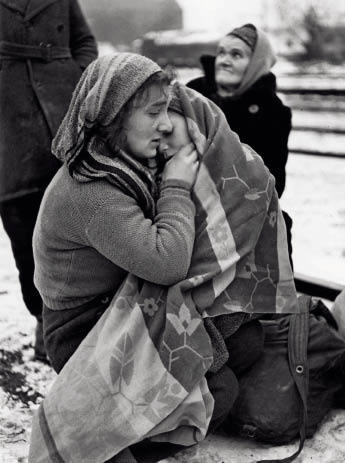Long before the Allies landed in Normandy in June 1944 and began their advance across France, preparations were underway for what to do about the civilians who had been displaced by the German occupiers. What everyone feared was a repeat of the chaos that followed the first world war, when refugees and returning prisoners of war brought with them typhus and a flu epidemic which, by the time it had spent itself, had killed more people than all the casualties of the war itself. What no one had envisaged, however, was either the number of displaced people adrift across Europe, nor the state that they would be in. And, as the Allies advanced, causing more destruction, so the numbers and the confusion grew.
There have been several recent books on the liberation of Europe, most notably William Hitchcock’s Liberation: Europe 1945, but Ben Shephard has kept his focus closely on the story of the 15 million people who needed repatriating and looking after. Many of these either could not or would not go home, either because they had no home to go to, or because the borders and the ideologies of their countries had changed, or because their countries did not want them back. The organisation set up to deal with them was UNRRA, the UN Relief and Rehabilitation Administration, dominated by American money and interests, but constantly buffetted by changing political constraints, self-important administrators and rivalrous officials. No more then than now did international organisations committed to saving lives seem able to function harmoniously.
The needs of the displaced people proved ovewhelming. However much money was raised, it was never enough. While in Washington, London and Moscow the major powers wrangled over funds, jockeyed for influence and bickered over priorities, a remarkably small number of people on the ground battled against formidable odds to open camps and feed, clothe, educate and counsel destitute men, women and children from every European country and every religion, speaking a multitude of languages, each with their own needs, fears and memories. Few, as the international relief workers had hoped, turned out to be ‘tractable, grateful and powerless’. On the contrary, many were demanding, troublesome and nationalistic. The notion of the ‘good’ and the ‘bad’ refugee, so often voiced today, was no less present in the late 1940s. Shephard paints a vivid picture of the nature of the different camps and quarrelsome personalities.
Nor were the needs all material. Though information about the German concentration and extermination camps had been available since the autumn of 1942, no one seems to have anticipated the mental condition the survivors would actually be in. Shocked, sick and skeletal, the people emerging from behind barbed wire presented problems beyond the imagination of the liberators. Apart from anything else, the Allied forces did not know how best to feed people who had been starved for several years. Two thousand of those liberated from Belsen died after being given food too rich for them to digest.
Though the wrangling continued, and there were terrible scenes of forced repatriation, sometimes to certain death, the displaced began to go home. Shephard devotes several chapters to the Jews who made their way to Palestine, and to the troubled beginnings of the State of Israel and the legacy they left. At the end of 1947 there were still a million homeless people, most of them in camps in Germany, described by one survivor as a remnant ‘stuck in the throat of international politics’, and soon trapped by the realities of the Cold War. In the wake of UNRRA came the UN High Commissioner for Refugees, and the UN Convention on Refugees, and the refugees they now had to deal with included not only those displaced by the European war, but those driven into exile by the Hindu-Muslim riots in India, the flight of Arabs from Palestine, the Korean war and the Hungarian uprising.
Given the scale of operations — in comparison to the ill-planned programme put in place by the US and British forces in the aftermath of the Iraqi war — the Allies did not do badly in 1945, even if, as Shephard says, much of their forward planning turned out to be irrelevant and sometimes counterproductive. But as this well researched and comprehensive account makes plain, the clearing up process marked not, as everyone hoped, the end of the refugee problem, but the beginning of what is proving to be one of the most lasting and intractable issues of our times.






Comments